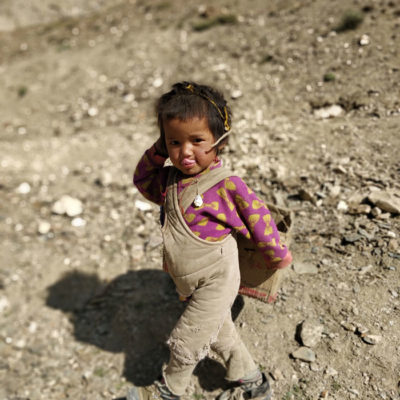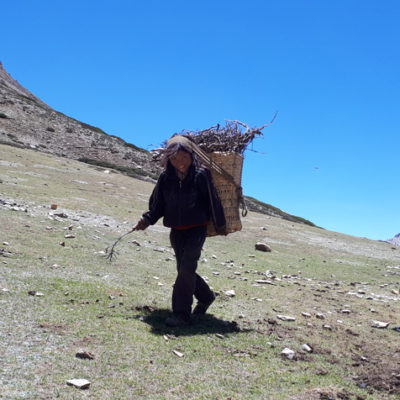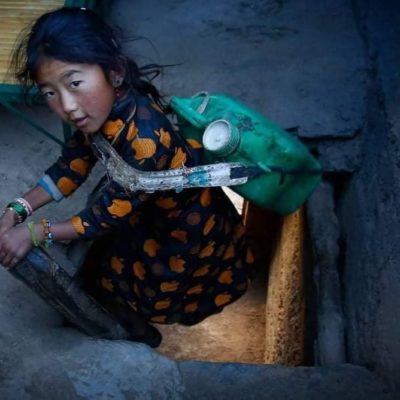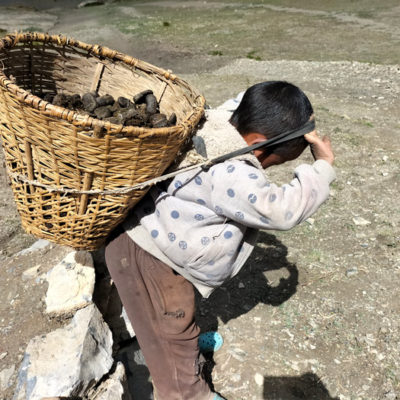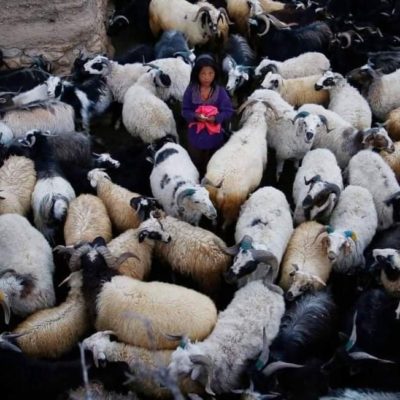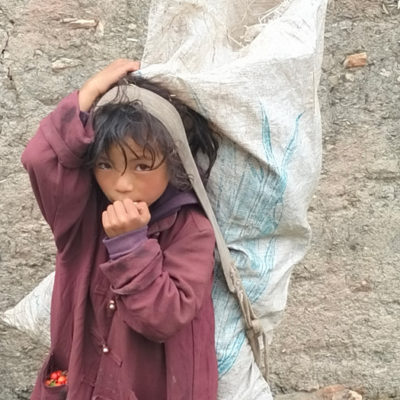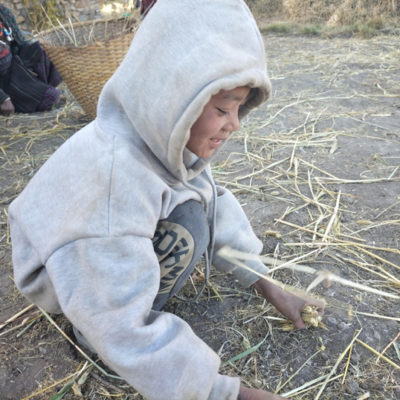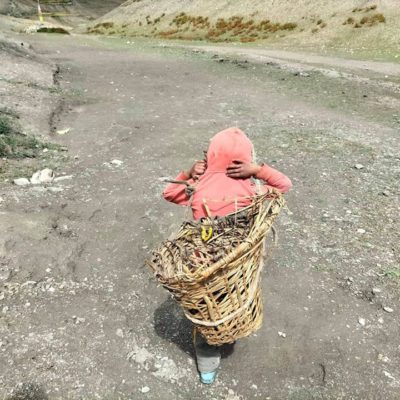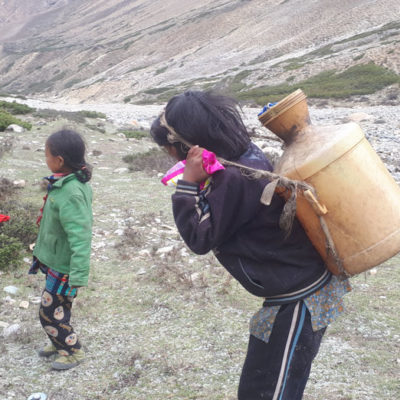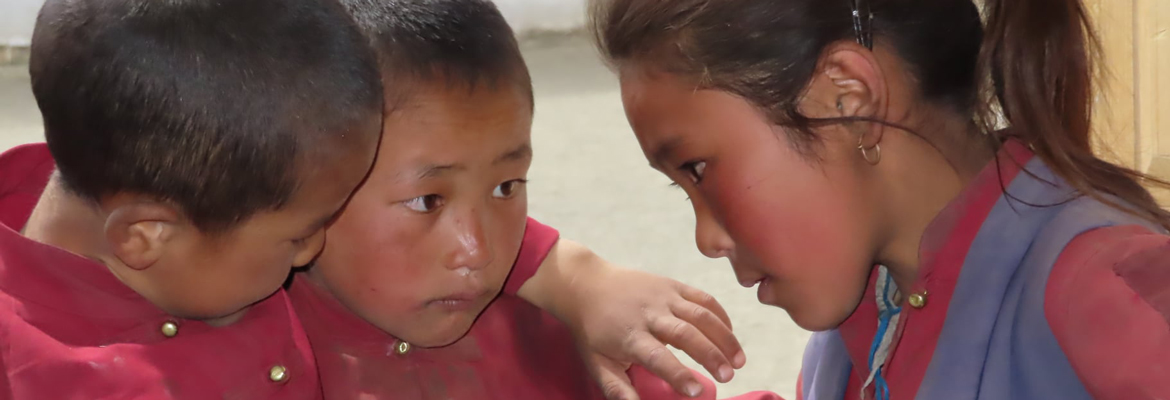
About the Students
The students here face unique challenges. Their parents are subsistence farmers and semi-nomadic livestock herders. Several students have only one parent, some have none. Everyone in the family must work together to survive. Children have incredible responsibilities from a very young age. 5-year-olds are tasked with herding the family goats and protecting them from wolves and snow leopards. If their animals do not thrive, or if the crops fail, stomachs go empty. Parents need their children’s help and many are reluctant to send them to school.
(To learn more, we highly recommend Dorje Dolma’s terrific book Yak Girl: Growing Up in the Remote Dolpo Region of Nepal.)
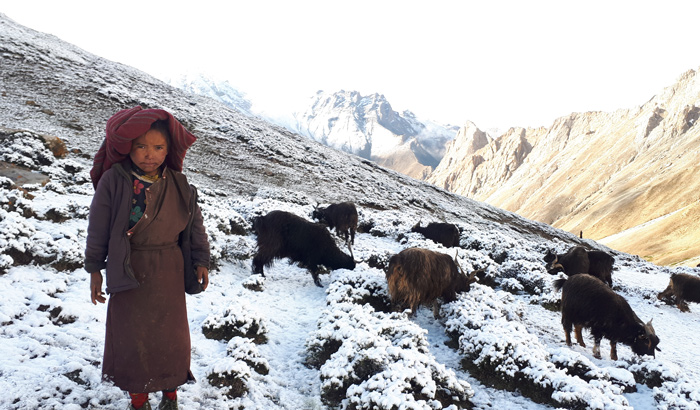
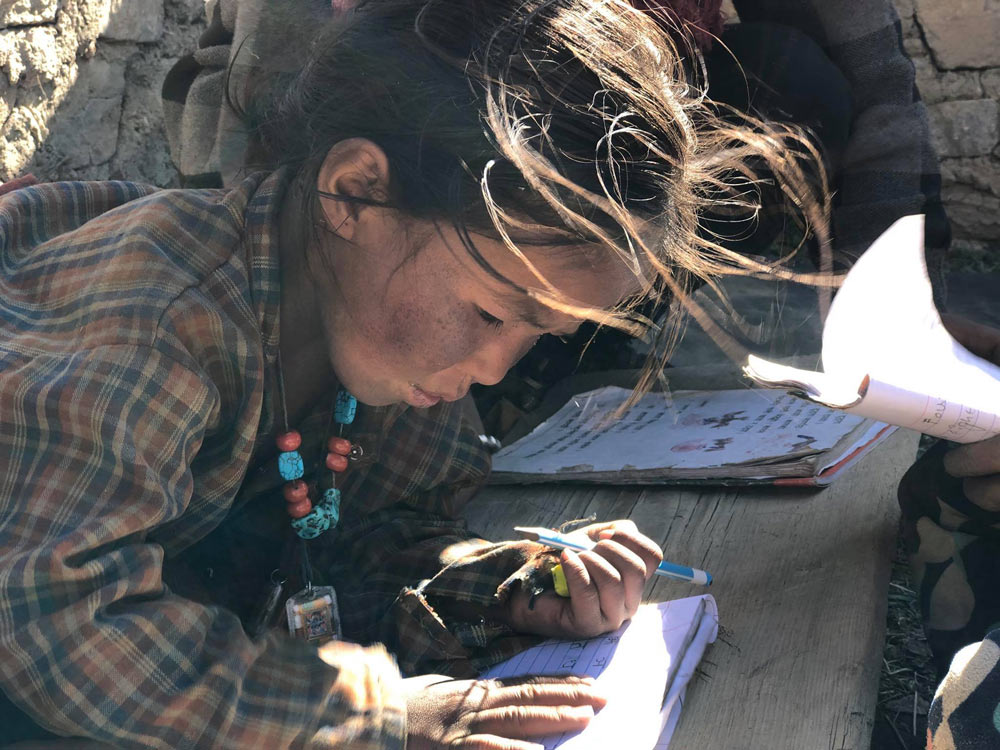
“The fact is that parents don’t understand the importance of education. They have never been to school nor can they write a single letter. They live a very difficult life and the only thing they have in their mind is their small farm to survive. This is a transition phase, the first ever entire generation to get an education. Parents need help understanding the importance of education for their kids.”
– Pema Wangchuk, Karang Hostel manager
Pema’s Story
Pema is 13 and is in grade 1. She is very bright and she loves school. She works very hard when she is allowed to go to school. Her mother died, and she lives with her stepmother, her father and her two younger brothers. The family is very poor and they need her help at home. She cares for her brothers who are too young to go to school. She helps with all the household chores, getting the water, cooking, cleaning, washing, and collecting sticks. She also helps with fieldwork.
Pema so desperately wants an education that sometimes she runs away from home, and comes to school without letting her parents know. Occasionally they let her go to school, but only for a week, then, a few months later, for another week. Her teacher, Phurba, sympathizes with her parents, but considers it her personal mission to help Pema learn. She says, “Her parents are angry with me for encouraging her dream, but I will keep asking them to send their daughter to school.”
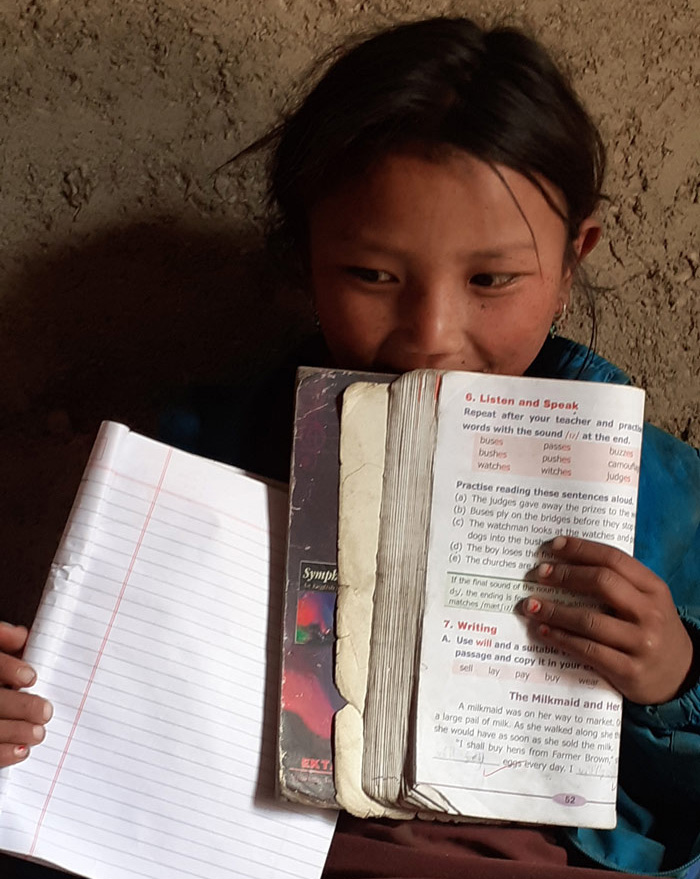
“I feel a big responsibility and hope for my village people as without education the people are ill equipped to live outside the village. Multiple generations will benefit from the education provided by a local school. If children are deprived of an education then both the local and global community is deprived of opportunity and talent.”
– Pema Tsering Gurung, coordinator, Ku School
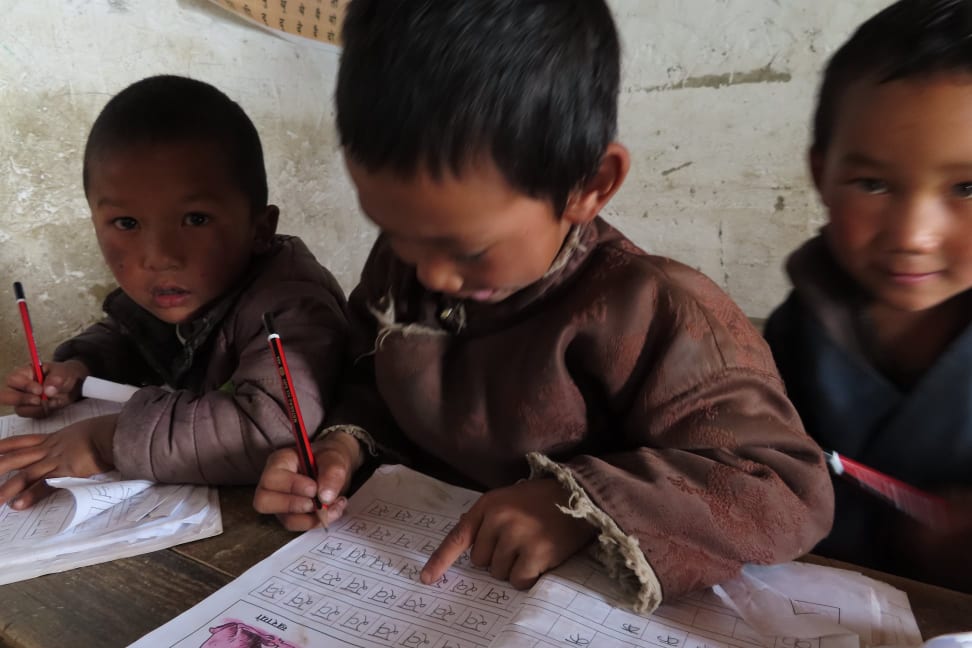
The school coordinators have made it their mission to convince reluctant parents to allow their children to attend school. They talk to the parents individually, they give them examples of students who have graduated and now have jobs, who now have the potential to make a difference to the Dolpo. And, of course, how they can help their family.
The students work hard at school, and they continue with their responsibilities in their home, in the fields and with the livestock. Some schools have added extra classes to help students after regular classes. Student attendance is improving every year.
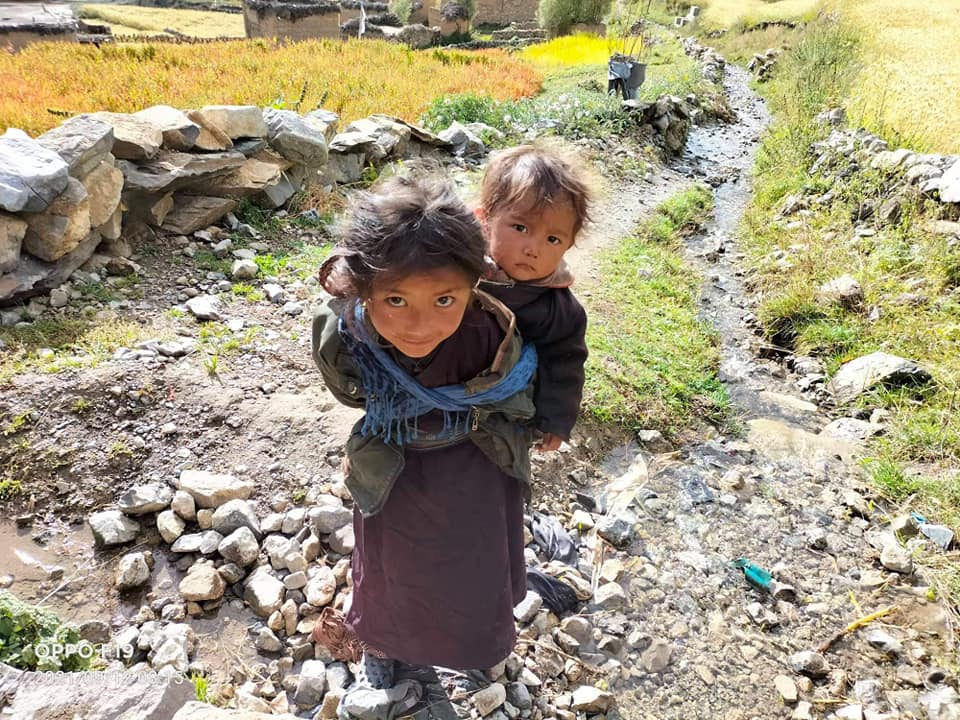
Pema is in grade 3. She looks after her younger sister after school so that her parents can work late in their fields.
“Our children really does hard work like, waking up early and going to bring water for home with bottle on back from 15 minutes far away, then going to school, after school they do help family with taking care of animals likes sheep, goats, cows, yaks, horses, etc and they do school homework at evening. During the weekends they go to hills to collect twigs, yak and cow dung for firewood.”
– Nyima

Students often miss such large blocks of school that they must repeat the grade. Many elementary grade students are in their early/mid-teens.
“Working together with students and their parents is the hardest work in Upper Dolpo. We have to teach the parents. One issue is some parents still send their kids to a monastery, even though most drop out. The other one is short term view. The parents need help with work and they would rather their kids work in the field than go to school. There are no incentives in the short term and it makes it challenging to convince parents to send their kids to school.”
– Pema Gojor, school coordinator
These kids are in the nursery class. It frees their older siblings to attend classes, and their parents to work in the fields. It’s lunch time and they are outside for a nap. Some days they are outside the entire day because they don’t want to go inside for class.
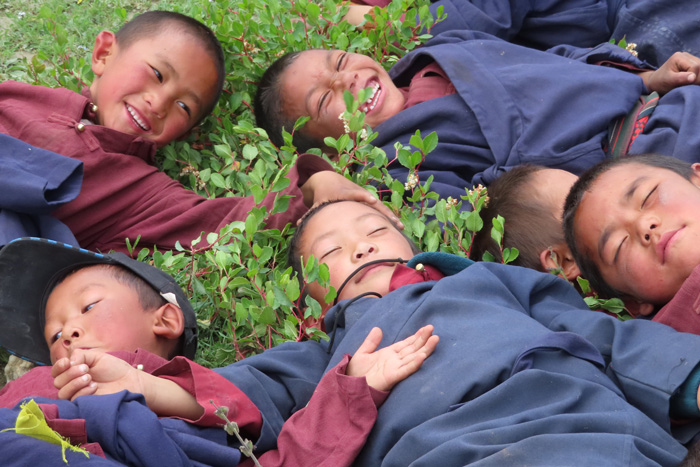
The students help build their school!
These students are carrying stones to help build a new classroom. Stones make up the foundation. The walls are made of pounded clay.
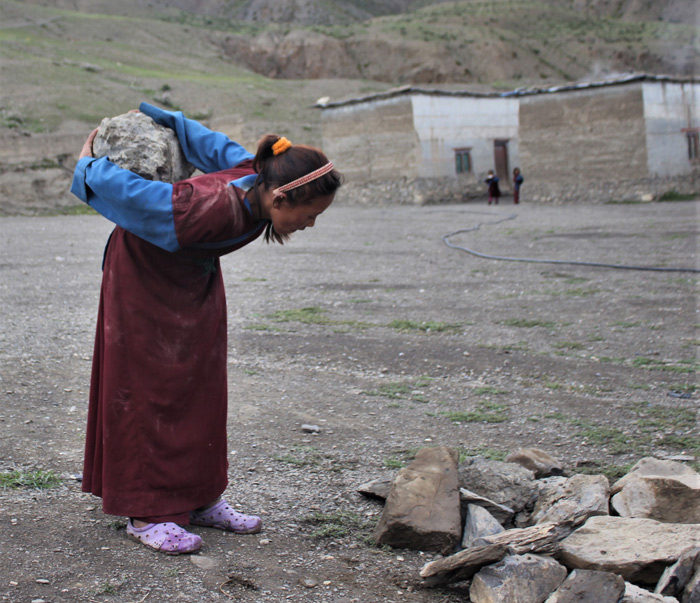
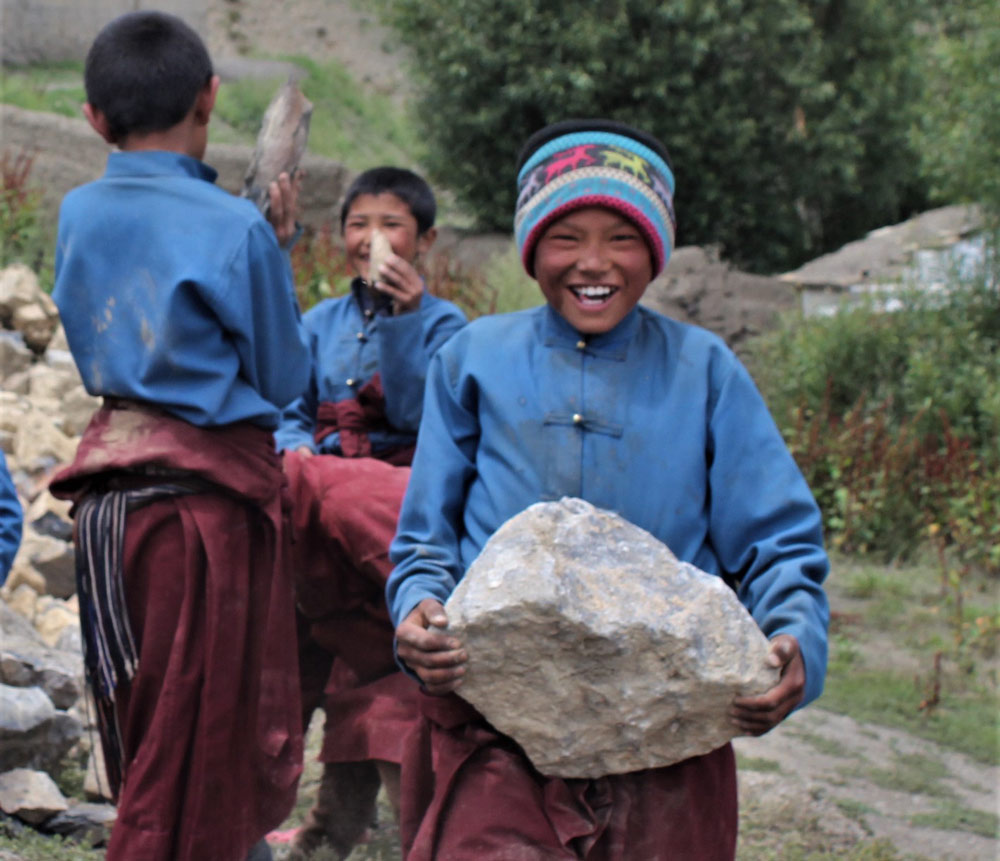
Sonam’s Story
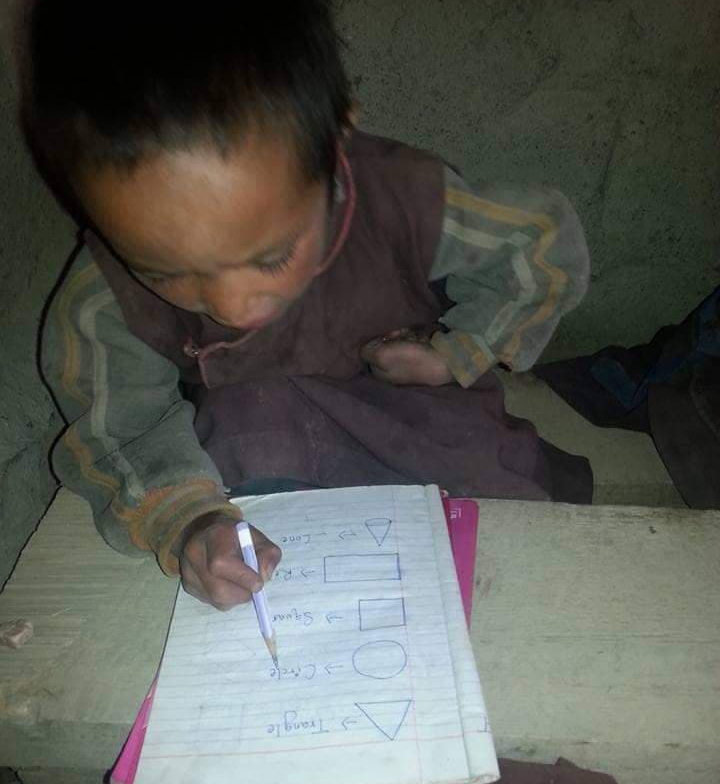
Sonam is 10 years old and her family is very poor. She has four siblings. Her father was the head lama of the village but he died when she was very young and her mother is struggling to provide for the family. Sonam is in first grade and her favorite subject is science. She loves helping others and her dream is to become a nurse. When she is not at school, she helps her mom with household chores, and with collecting sticks and yak dung to help cook their meals and to stay warm.
Palsang’s Story
Hello, my name is Palsang. I have no father and mother, they passed away and now I live with my sister and brother. I am in grade 6 and am 13 years old. I am very happy! I study hard because I want to be a doctor. My Kyi village has no school. It takes me one and half hour to walk to Karang village school. It is dangerous for me because there is a big river I have to cross from my village to Karang and during rainy seasons the river gets big and difficult to cross and there no bridges. And that’s why sometimes I stay at Karang village hostel in the summer when we get very heavy rain and too dangerous for me to go home or come to school.
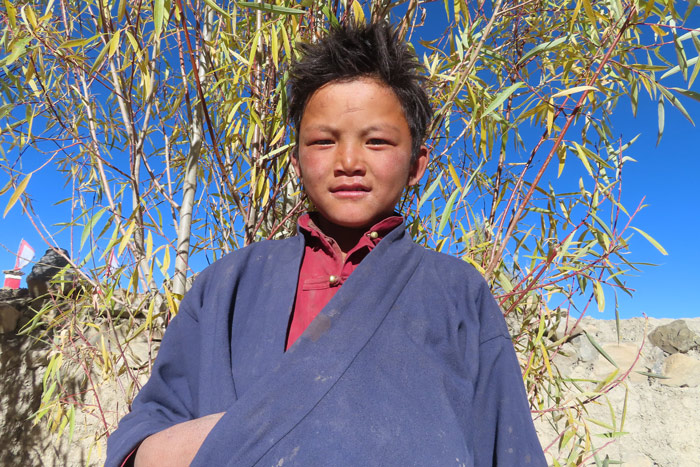
Nyima’s Story
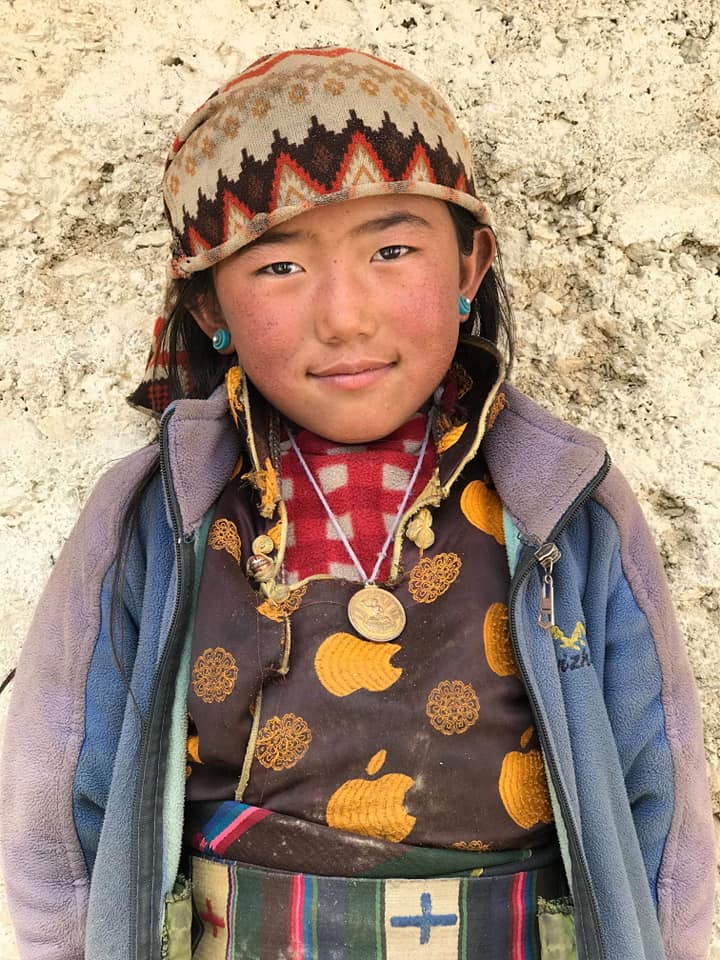
Nyima is 13 years old and will start grade 5 next year. She has 2 younger brothers. She is very good hearted, and is always helping others. She is especially helpful and generous with the younger kids, both at school and in her neighbourhood. She studies hard at school, her favorite subject is math. She loves dancing, helping, playing with the younger children and telling stories. After school, she helps her parents at home with cooking and fieldwork. Her parents are also very kind and generous. They are always ready to help with the school and often ask the teachers if they need anything, anything at all . Her father is a traditional herbal doctor. The whole family is pure kindness.
Most students consider it their responsibility to complete their education and return to Dolpo: “I feel it is my responsibility to give back to my community. The only way my village is going to develop is when young people like me get educated, and head back to help others like us. There is so much to do.”
– Tsering Sumjok
Pema, the Story of an Adult Student
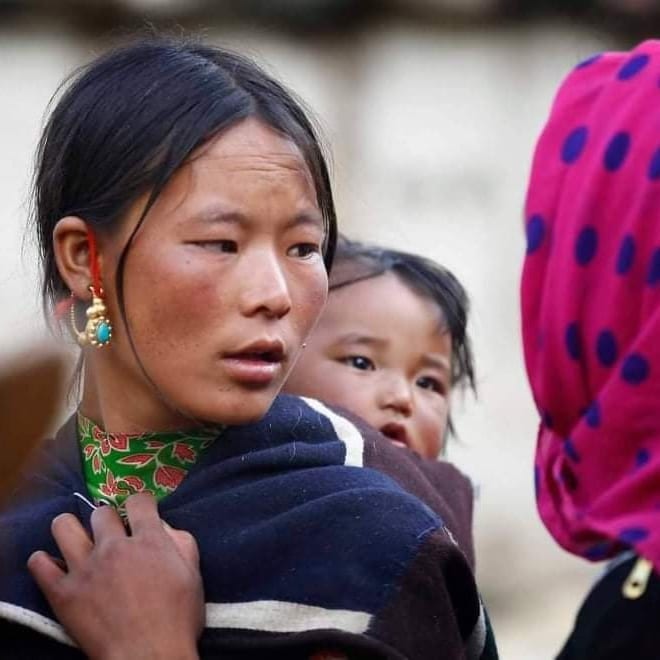
Pema married when she was very young. She lives with her husband, a stepdaughter, and 2 sons. She sends her exercise book with her stepdaughter to school and the teachers give her exercises to do at home. She completes her homework, and sends it back for checking and more homework.
Bomchok’s Story
The schools hold special classes in the winter to give adults and older children, who must work in the fields the rest of the year, an opportunity to learn to read and write in Tibetan, Nepali and English. Basic numeracy skills are also taught.
Bomchok is 23 years old. She cares for her mother, and for her one-year-old child. Bomchok is eager to learn to read and to write, and attends the winter class every year. She studies hard and does well in her exams! She is very grateful for the opportunity to learn, and dearly wishes she could study in the spring and summer classes but she has to work long hours in the fields or her family will go hungry.
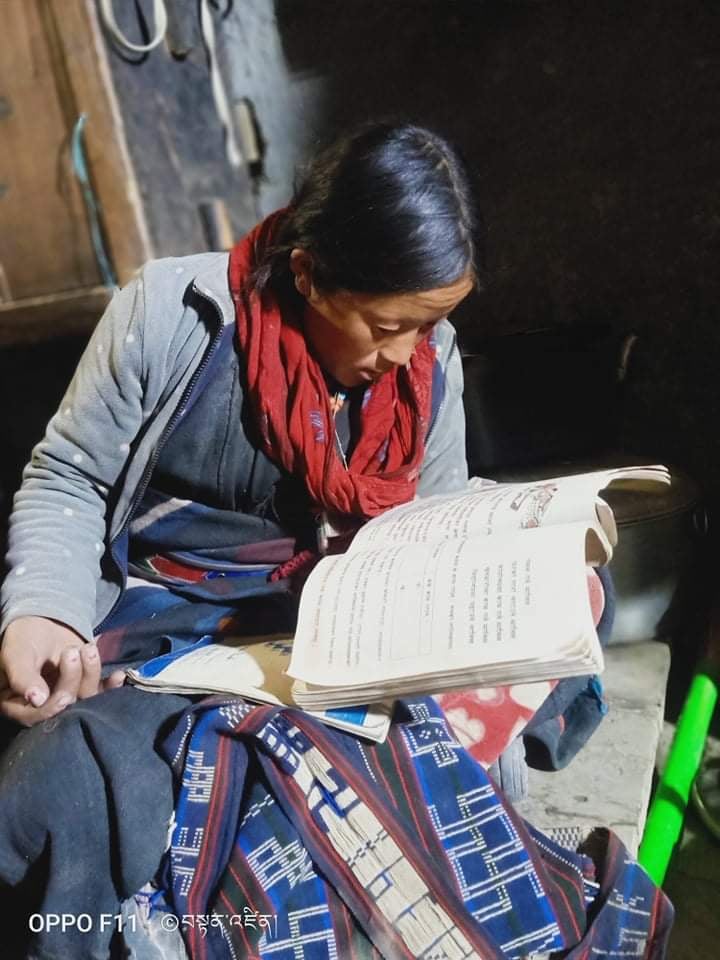
“Education is the right of every child. It should be free and fair, with equal access for girls and boys.”
– Article 28, Convention on the Rights of the Child, 1989

